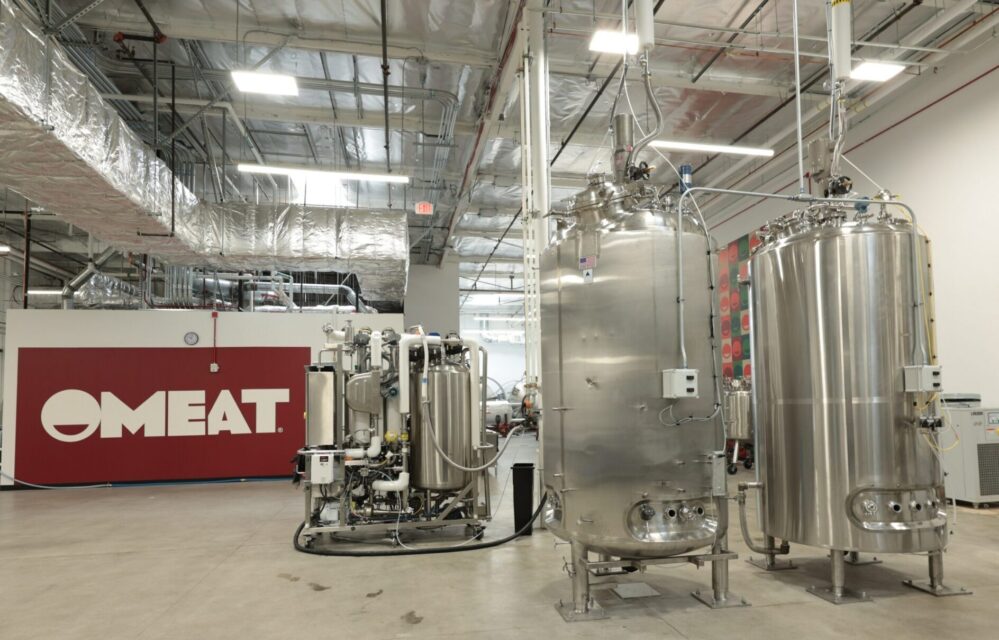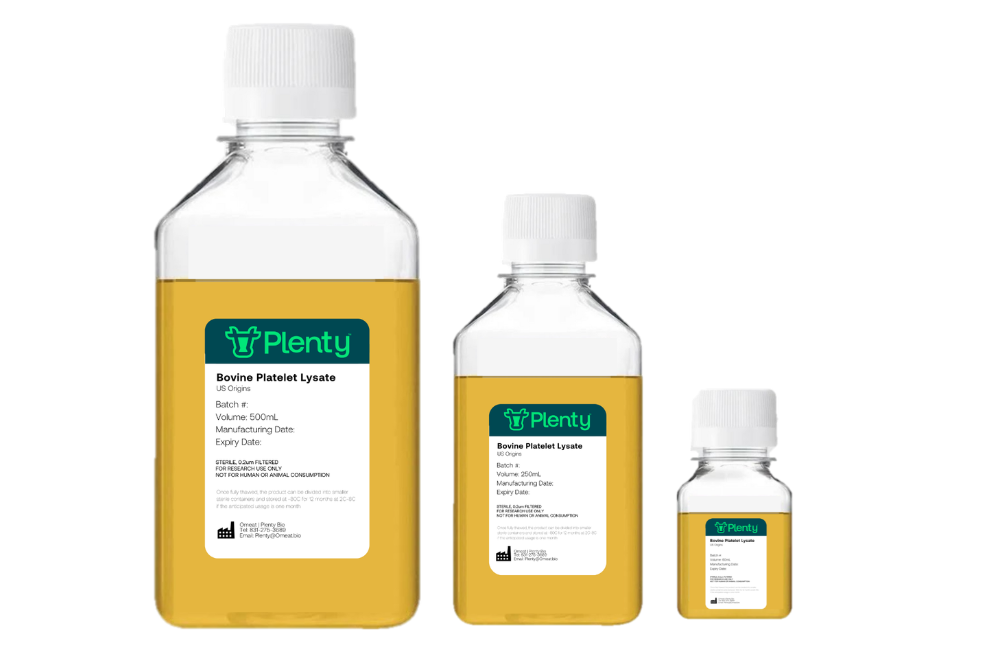Less than a year after emerging from stealth with an “elegant solution” to scaling cultivated meat by harvesting nutrients from “healthy cows” for its cell culture media, California-based Omeat is operating with a skeleton crew following a turbulent few months during which the founder stepped down as CEO after being accused of creating a hostile working environment.
According to one former employee who spoke to AgFunderNews this week, the company “is mostly down to a core science team, so there are maybe fewer than 10 people now down from a peak of almost 50.”
Layoffs and cutbacks are increasingly common in the current venture capital downturn. A range of companies, from those with great prospects and even with great revenue numbers, to those at the very early stages, are struggling to raise funding to take them to the next stage and ultimately to profitability.
However, the rapid downsizing at Omeat has raised some eyebrows in the nascent industry given how recently it entered the space.
‘A totally different way of trying to address’ cell culture media challenges
Founded in 2021 with $3.5 million in seed funding by tissue engineer Dr. Ali Khademhosseini, Omeat raised a $36.5 million Series A round from investors including S2G Ventures, Google Ventures (GV) and Tyson Ventures in 2022 to fund its unique approach to media for cultivated meat, which uses growth factors and other components from the plasma* of cows to replace fetal bovine serum (FBS). The latter is a nutrient-packed substance that helps cells grow but comes with a hefty price tag and ethical baggage.
Speaking to AgFunderNews last summer, Dr. Khademhosseini said Omeat’s approach was more humane and more scalable than using FBS, and far cheaper than buying cell culture media containing recombinant proteins made via precision fermentation: “Most people are hoping that the cost of media will come down as they scale, but we’re still years away from that.
“We came up with a totally different way of trying to address these challenges by asking, ‘is there a way for us to partner with existing food infrastructure by collecting ingredients from cows, without slaughtering them?'”
Although some commentators argued that the whole point of cultivated beef is to displace animal agriculture, Khademhosseini claimed Omeat’s approach would still enable a 95% reduction in cattle production and transform the unit economics of cultivated meat. “The exciting thing is that we can achieve price parity today if we operate at scale, without relying on future innovations. And we can do that with 10,000-liter bioreactors.”
Rising tensions
While Omeat has secured 2,000-L and 10,000-L bioreactors from India for its new pilot plant in Thousand Oaks, California, it is still working to validate its process at the 200-L scale, said one former team member, who said pressure to demonstrate a scalable process has been mounting for startups in the category as funding for alt proteins — and cultivated meat in particular — has started to dry up. To place this in context, only a handful of startups have validated their tech in bioreactors over 200-L, including Vow, GOOD Meat, and UPSIDE Foods, which says it has “conducted dozens of runs at the 2,000 liter scale.”
By late October 2023, say former employees, tensions were rising at the startup: it was gearing up for the official opening of its pilot plant but was still making what Dr. Khademhosseini felt was frustratingly slow progress.
Things came to a head when multiple employees filed written complaints about Dr. Khademhosseini after he unleashed a tirade of abuse at team members following a business trip, describing them as lazy and incompetent in video footage filmed by staff members and seen by AgFunderNews.
Written complaints
In the video, Dr. Khademhosseini said he was “sick and tired of all you guys” to assembled staff members, who he described as “idiots,” adding that “you guys have demonstrated nothing but incompetence… Do you want me to be saying, ‘Oh great job for failing for two years?'” At one point, an employee is heard asking, “Is this supposed to be motivating?”
According to one witness: “He just started unloading, he had a complete meltdown.” According to another: “He would belittle the team and the PhD scientists. He put them under so much pressure that they would just tell him what he wanted to hear.”
Following an investigation by a third party law firm into Dr. Khademhosseini’s behavior, which the company says found no evidence of wrongdoing or unlawful conduct, CTO Jim Miller was then installed as CEO in charge of the day-to-day operations at the firm.
Since then, Omeat has been hemorrhaging staff, said another former employee. “There were rounds of layoffs in January and February and then several people were leaving of their own accord because they could see the writing on the wall.”

‘The investigation ultimately found no wrongdoing or violation of law’
In a statement sent to AgFunderNews about the change in leadership, CEO Jim Miller said: “Omeat engaged an independent third-party law firm to conduct a thorough investigation to address concerns raised by some employees following an all-hands meeting. The investigation ultimately found no wrongdoing or violation of law.”
He added: “At Omeat, we strive to foster a positive work environment and culture that allows our employees to thrive and focus on the company’s business. We remain intent on positioning the business to ensure the continued success of Omeat and our mission, including by continuing to secure new sources of funding.”
An Omeat spokesperson added: “Jim Miller was installed as CEO to handle day-to-day operations. [Founder Dr.] Ali [Khademhosseini] requested that position shift and it was fully supported by the board. Ali is continuing to work with Omeat as a board member and a scientific adviser.”
Asked about the recent rounds of layoffs, the spokesperson added: “Omeat had to make a difficult decision to trim the staff because the company believes that it can meet milestones of getting to commercial viability with a smaller staff. This is a testament to how the technology has been validated and is well-defined, and so the company no longer needs such a large R&D team. The technology has been demonstrated at the 200-L scale.”
‘The science isn’t ready to scale’
However, one former employee told AgFunderNews: “At the 200-liter scale, we successfully held media with some cells in there without contamination, but we usually ended up with less cells than we put in to begin with.”
Another former employee explained: “We rarely ran the 200-L [bioreactor], and it usually failed for contamination. We had some cell growth in the 20-L scale on a couple of occasions but I really don’t remember any success at the 200-L scale. They just never had a properly defined process. We also had challenges with cleaning the bioreactors, and when we got the [larger] bioreactors from India, we had to assemble them ourselves, and some stuff was missing; they weren’t great.”
Another added: “Omeat isn’t ready to scale. The science isn’t quite ready, and it has effectively gone back into R&D mode, which makes sense.”
“The [larger] bioreactors are just sitting there all shiny and pretty [and unused]. I think Omeat’s ultimate sin was spending all that money transitioning into the pilot plant before we were doing everything properly at lab scale. There was this pressure to scale, scale, scale when we were not ready.”
Founder: ‘Positive announcement’ on funding expected ‘soon’
Asked about scaling up, Dr. Khademhosseini told AgFunderNews that, “With regards to our process scale-up, we are executing our scale-up plan and our core technology remains sound. We are also dedicating additional resources to gaining adoption and generating sales of our lower-cost alternative to fetal bovine growth serum: Plenty [a branded cell culture media supplement using components from plasma from living cows on Omeat’s farm].
“Plenty has shown positive results through extensive independent testing by a number of research institutes. We are in the process of assembling these results and will be sharing the Plenty whitepaper publicly very soon.”
Asked about the layoffs, he said Omeat had “taken steps to control our costs and extend our runway while we secure our current round of fundraising. We expect to make a further positive announcement on this soon.”

A chicken and egg situation
Regarding funding, one former employee said: “They are trying to raise money, but a lot of people are not willing to invest in alt proteins right now. The capex required to pull this off at scale is in the hundreds of millions and that kind of money just doesn’t seem like it’s out there right now.”
Funding for large-scale facilities with more appealing unit economics “is going to have to be a combination of sovereign wealth funds, government programs, and then general VCs, which right now are all focused on AI,” the former employee speculated.
“It’s a bit of a chicken and egg situation though, as generalist VCs aren’t going to be willing to invest until they see traction, and cultivated meat is not going to get traction without a whole bunch of capital.”
Investor S2G Ventures, which has a seat on the board, did not respond to a request for comment.
*Omeat withdraws plasma from cows in a pain-free process similar to that used in human plasma donation. It then hooks up cows (it manages a herd of 75 Holstein cows on a farm in California) to a plasmapheresis machine that collects blood, separates out the plasma and returns the remaining blood components to the cow. The plasma then undergoes additional processing steps.
Further reading:
Vow becomes third company to launch cultivated meat, but it isn’t starting with chicken nuggets…
Meatable CTO on the cultivated meat industry cycle: ‘Hype, stagnation, consolidation, redirection’
GFI highlights chicken-and-egg conundrum facing cultivated meat industry
Cultivated meat consolidation begins as UMAMI Bioworks to merge with Shiok Meats





